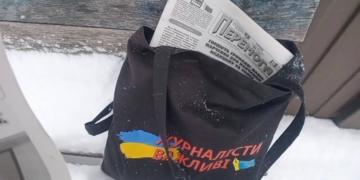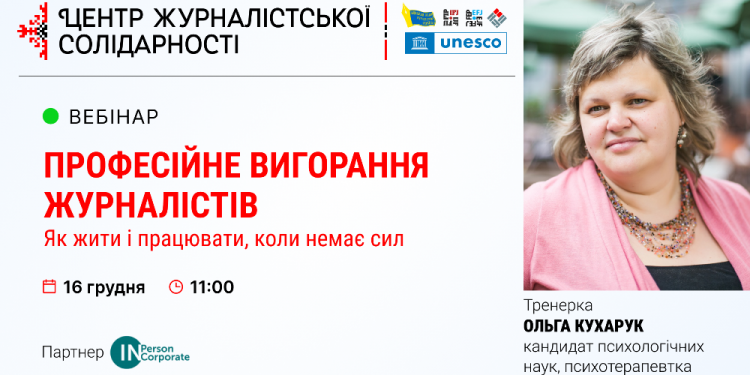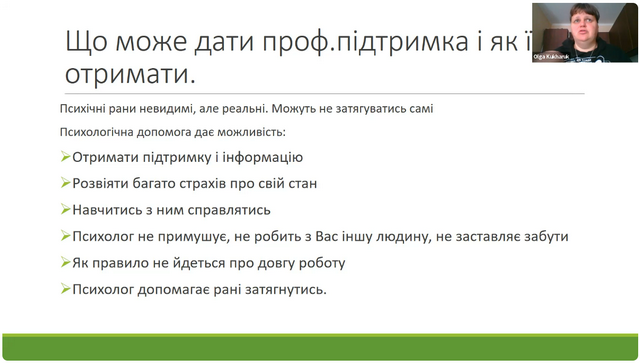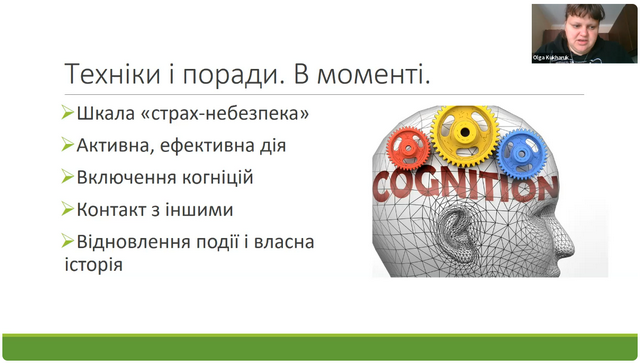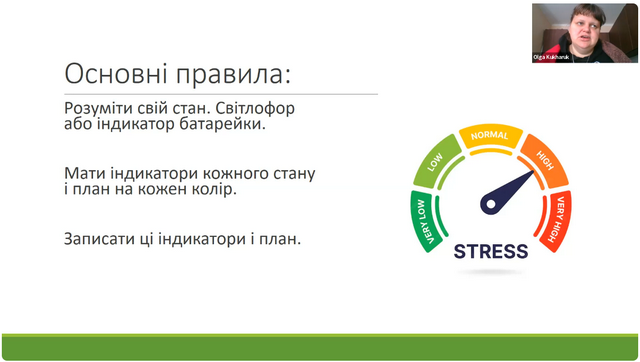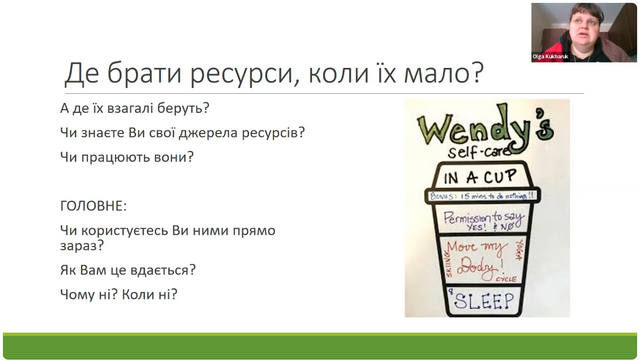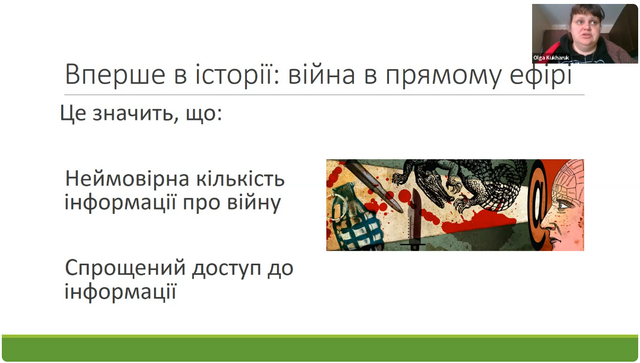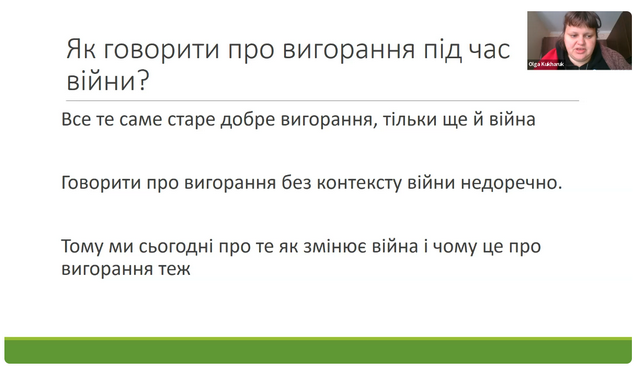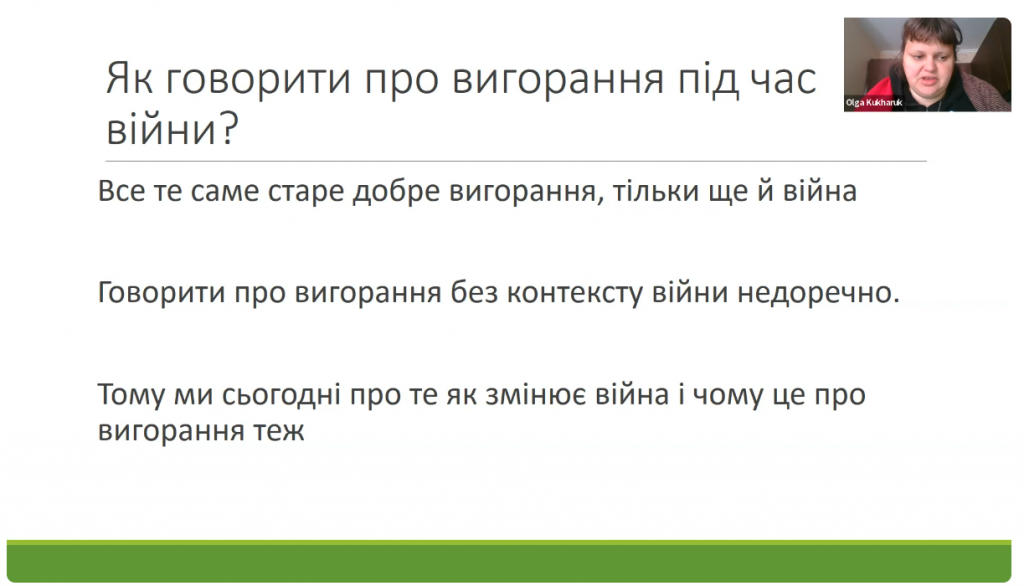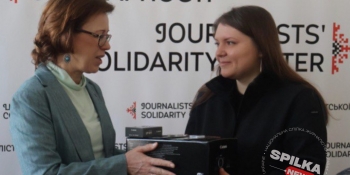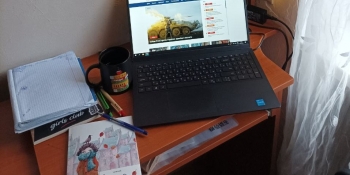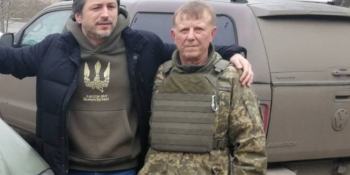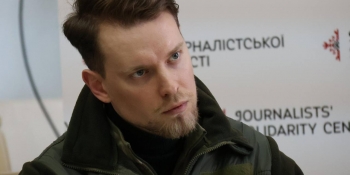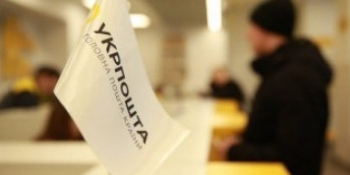The National Union of Journalists of Ukraine (NUJU), with the support of UNESCO, conducts work on the psychological support of media workers
The work of a journalist in Ukraine today involves constant contact with sensitive content and people who have suffered moral injuries. Media workers face emotional burnout and other psychological difficulties. That is why, within the framework of the activities of the Journalist Solidarity Centers, together with the In-Person Corporate company and with the support of UNESCO, the NUJU held the first webinar on psychological assistance.
“We are very grateful to you for extremely hard work that you do and your mental strength that you spend so that we can read and get to know what is actually happening. We exist precisely for this purpose, to help preserve inner strength as much as possible, multiply it and become stronger in the future,” said Nataliya Nalyvaiko, the head of the In-Person company.
Psychologist and trainer Olha Kukharuk worked with the media workers on December 16. As part of the webinar entitled Professional Burnout of Journalists. How to Live and Work in Absence of Strengths, the participants received useful advice on how not to let the problems of their characters close to their hearts and control their emotions.
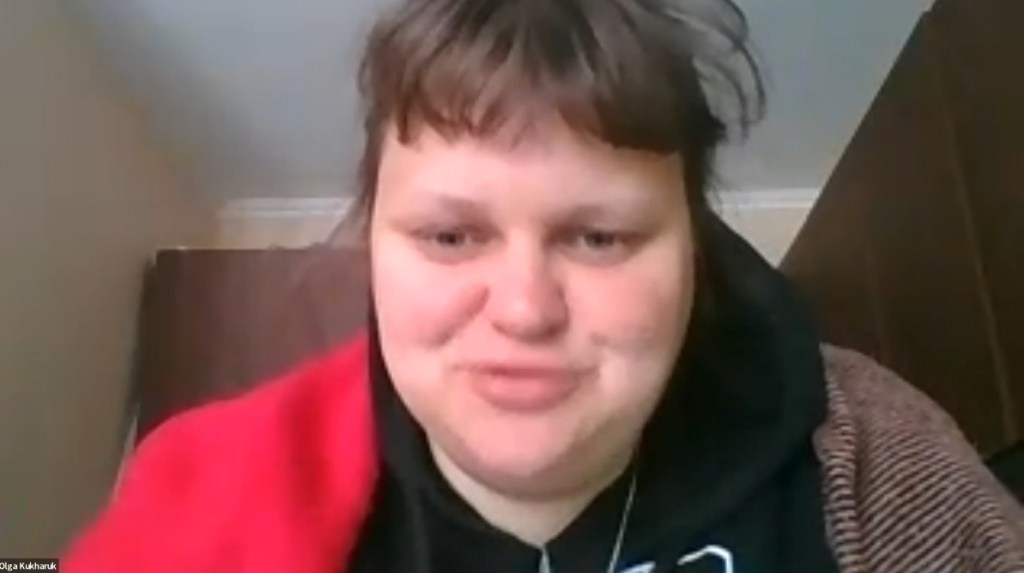
The psychologist also drew attention to the fact that journalists can also be influenced by their relatives. At the same time, it may not necessarily be an imperative form of forced appeal to specialists.
“Trauma is one of the cases when we can direct a person to help. And we can not be angry, but directive. Politely directive, benevolently directive, and yet it is necessary to talk about the fact that certain things happen to a person that affect their life,” said Olha Kukharuk.
The most common problem of journalists is professional burnout. During the webinar, participants received advice on how to deal with this and prevent work from completely absorbing a journalist’s moral system.
Sometimes stress reaches the red zone. In this case, the psychologist recommends:
• let oneself alone;
• give oneself the right to fail;
• develop and implement an anti-crisis plan.
Webinars on psychological support for journalists and their families will be held on a regular basis so that Ukrainian mass media representatives can overcome moral issues and increase the productivity of their work.
“The NUJU Launches a program of psychological support for journalists and their families. And as part of this program, a 24-hour support hotline for journalists and their families has been launched. We also offer to organize psychological webinars once a month, in order for qualified psychologists and psychotherapists to give certain practical advice for journalists, for us to realize the importance of the topic of mutual support, so that we have the strength to carry out an important journalistic mission. We strive to draw attention to the importance of psychological help through public webinars,” said Sergiy Tomilenko, the President of the NUJU.
The psychological support program for Ukrainian journalists and their families is implemented within the framework of the Journalist Solidarity Centers with the support of UNESCO.
You can get psychological help as follows:
• By phone 0 800 501 594 (free of charge from fixed numbers within Ukraine, according to your operator’s tariff plan from mobile phones).
• Via Viber or WhatsApp – send a message to 067 861 97 92.
UNESCO is the United Nations Educational, Scientific and Cultural Organization. It contributes to peace and security by promoting international cooperation in education, sciences, culture, communication and information. UNESCO promotes knowledge sharing and the free flow of ideas to accelerate mutual understanding. It is the coordinator of the UN Plan of Action on the Safety of Journalists and the Issue of Impunity , which aims to create a free and safe environment for journalists and media workers, thus strengthening peace, democracy and sustainable development worldwide. UNESCO is working closely with its partner organizations in Ukraine to provide support to journalists on the ground.





